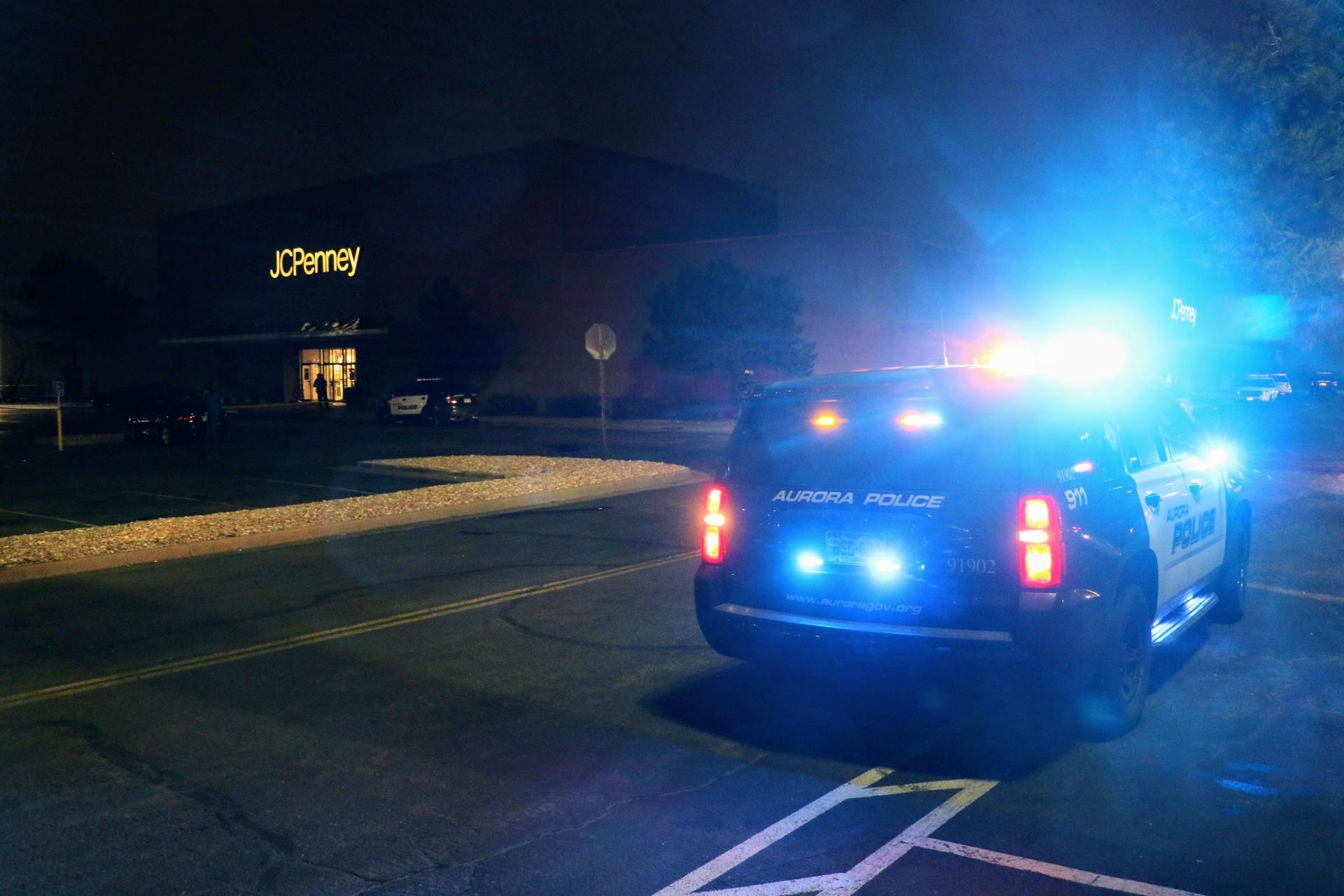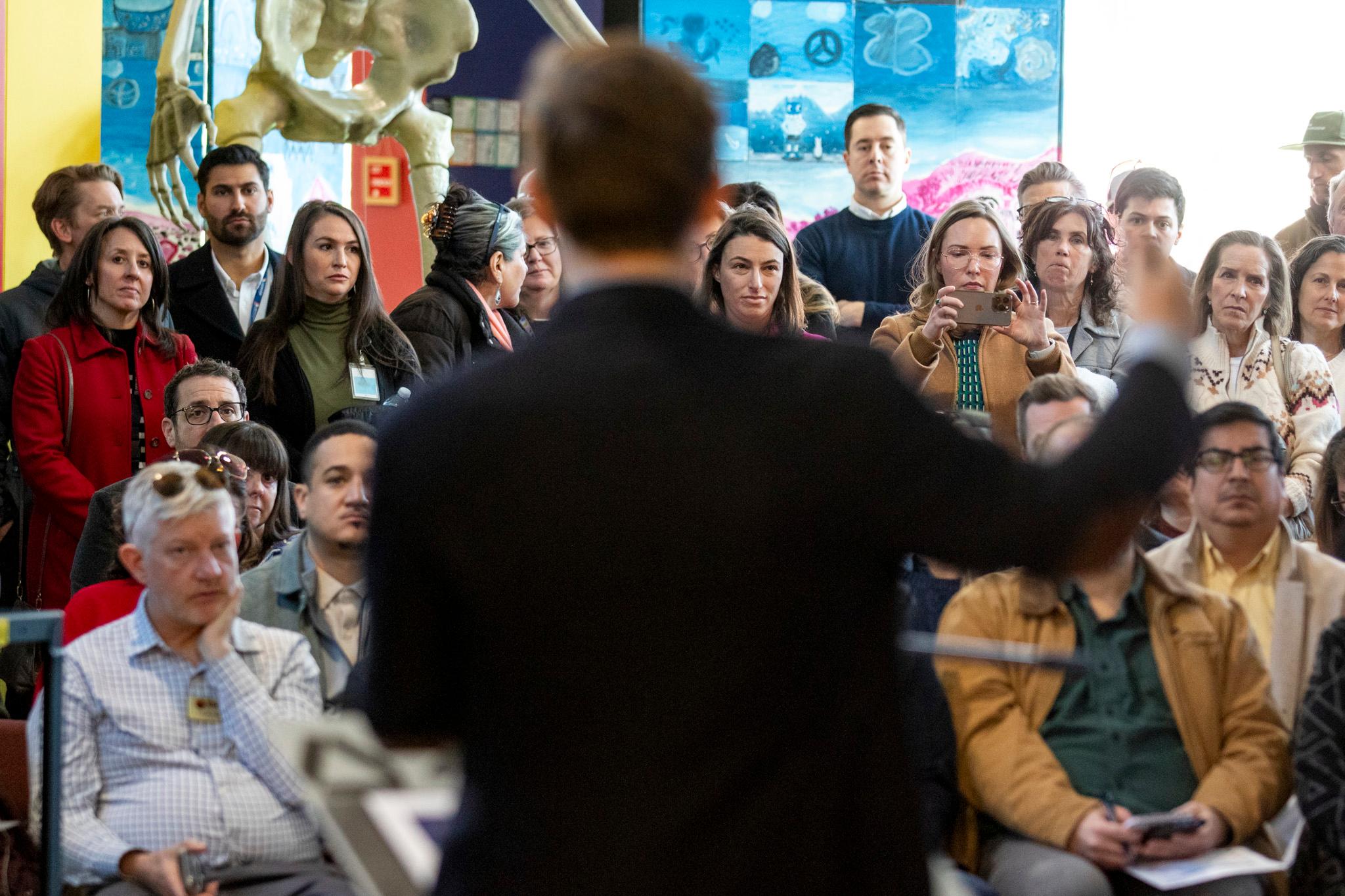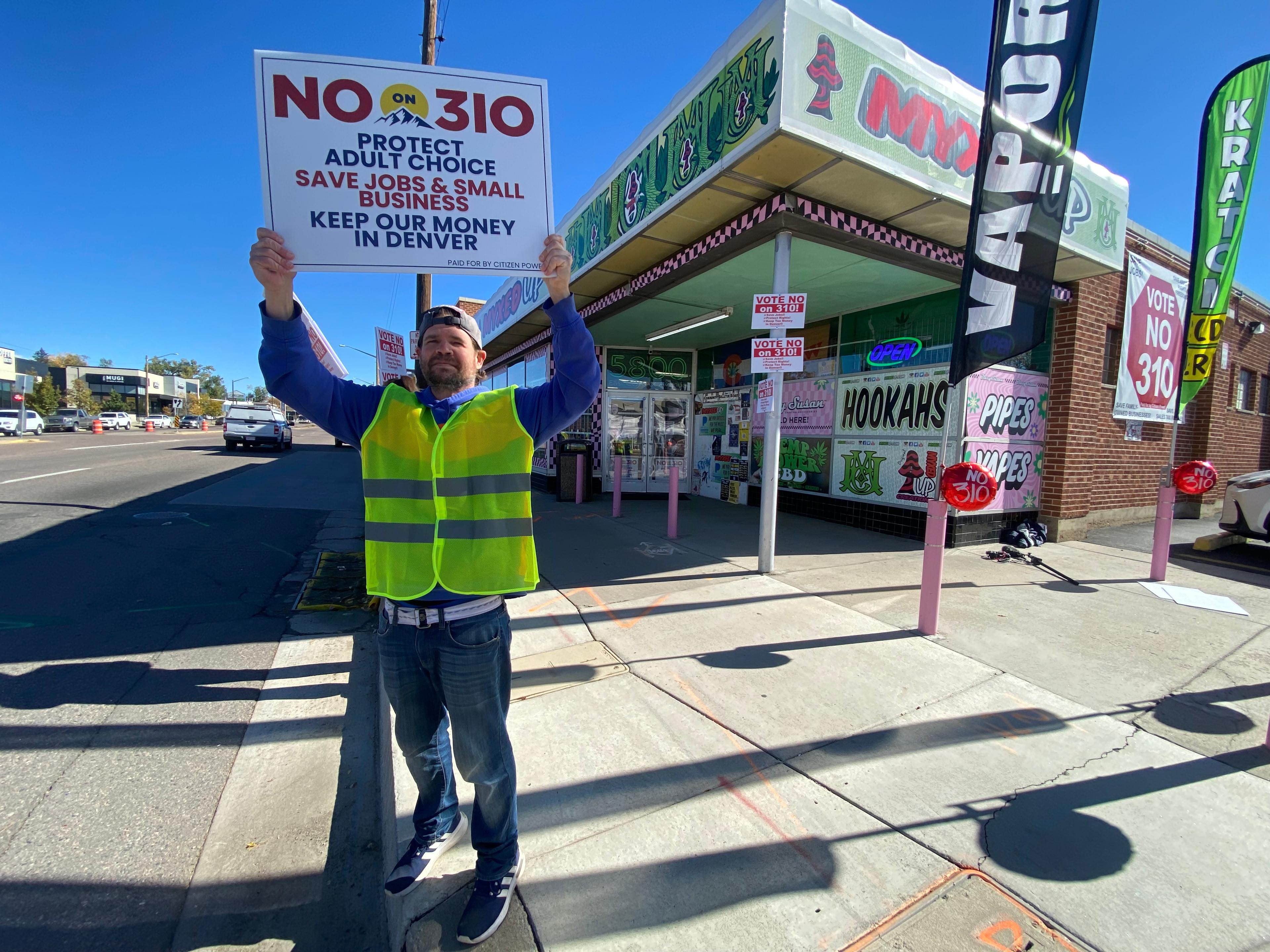District Attorney George Brauchler on Thursday expressed frustration as he detailed the reasons his office did not charge an Aurora cop who was found drunk in his department cruiser last year.
During a press conference Thursday, Brauchler said the case involving Aurora police officer Nathan Meier was an anomaly. He admitted that if the person in the car had not been a cop, the outcome probably would have been different. His office represents several metro area municipalities, including Aurora.
"I am incredibly frustrated with an agency that I put a great deal of trust in," Brauchler said at the 18th Judicial District Attorney office in Centennial, adding that he thinks most cops in the department are probably embarrassed by the incident. "Bottom line is if one of us had been in that car, and not officer Nate Meier, you ask me do I think it would have been treated differently? I do."
Meier was found unresponsive in his marked patrol car on March 29, 2019. He was armed.
Interim Aurora Police Chief Vanessa Wilson said Meier still works at the department under modified duty. The incident has resulted in policy changes at the department.
"I think I agree with the frustration that the DA is feeling," Wilson said in a phone interview on Thursday, adding, "The community has every right to be angry and I know that their trust is broken."
Following an investigation launched by his office in December, Brauchler said his office simply did not have sufficient evidence to successfully bring the case to trial. Among the biggest roadblocks for Brauchler's office was the way information was gathered by Aurora police and because of "decisions made" by Aurora police on the scene.
Brauchler was highly critical of Aurora police. He said information gathered by the police department as part of their internal investigation on Meier -- including details the officer told internal investigators about his drinking habits and a high blood-alcohol level -- could not be used by his office due to the Garrity Doctrine, which states that information provided by public employees for the purposes of an internal investigation could not be used against them in a criminal prosecution.
Brauchler said because Meier was compelled to provide that info, and he did not provide the information voluntarily, his prosecutors couldn't use it. He characterized it as "a wall" preventing his office from pursuing charges.
"We lose if we do that," Brauchler said about violating the doctrine.
Aurora City Manager Jim Twombly released a statement on Brauchler's decision on Thursday afternoon. Twombly said he agreed with Brauchler's view that they "got it wrong." Twombly mentioned an additional, independent investigation on the incident by former U.S. Attorney John Walsh is pending.
"There were questionable decisions made at the scene that failed our residents, failed our many hard-working police officers, and failed our city," Twombly said in the statement. "This incident falls far short of the standards of accountability and integrity we expect of all city employees and has jeopardized our strong relationship with our residents. But that relationship is not irrevocably broken."
Brauchler said what happened in this case isn't his usual experience with Aurora police. It wasn't a cover-up, Brauchler said, though how the department handled the incident surprised him, he said.
Unlike cops, whose threshold for pursuing charges is probable cause, his office has to look at a reasonable likelihood of success at trial.
"Given the evidence that I have right now, I don't think I have enough," Brauchler said. "I don't think I can convince a jury and it would be wrong to simply charge someone to take them to court just do it."
Meier had a .43 blood-alcohol level, according to a hospital where he was taken, which is more than five times the legal limit. That detail was reported by Meier during the internal affairs investigation, which made it unusable for the DA's office.
The DAs office interviewed officers and EMS professionals who responded to the scene.
Wilson said Meier department punishment included a demotion and a 360-hour suspension.
Brauchler said his office has prosecuted 13 cops for DUIs, including some from Aurora, since he took office in 2012. He said none of the cases involved a cop who was unresponsive, like Meier.












